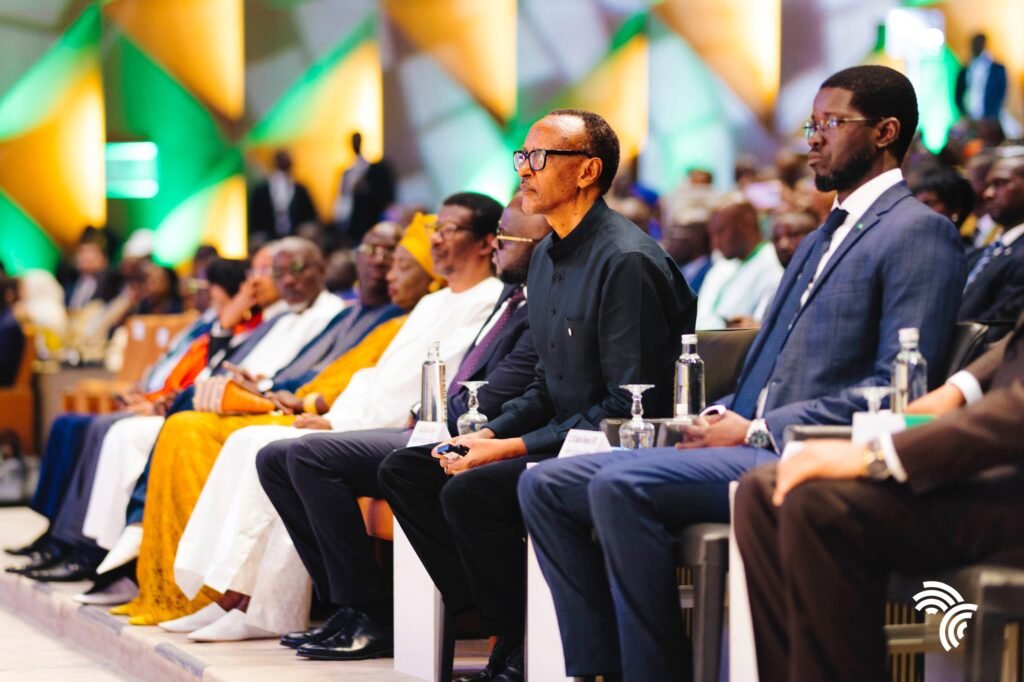By Zablon Oyugi
The 2025 African Food Systems forum concluded in Dakar, Senegal, in September, with scientists, and innovators walking away with prestigious awards recognising their contribution to the continent’s food security efforts. Notably was the $100,000 Africa Food Prize (AFP) 2025 won by Prof Mary Abukutsa-Onyango from Kenya and Nigeria’s Dr. Mercy Diebiru-Ojo. The 2025 Women Agripreneurs of the Year Awards (WAYA) prizes were won by 10 women who are leading innovative enterprises and driving significant economic growth across the continent’s agricultural sector. Climate-smart farming, sustainable seed systems, and digital-driven agribusiness were brought up in discussions as key interventions to strengthen food production while addressing climate change and economic development.
However, a report released during the event indicates that food insecurity continues to rise, disproportionately affecting women. According to the Status of Women in Agrifood Systems in Sub-Saharan Africa Report released by the Food and Agriculture Organization of the United Nations (FAO), 11.2 million more women than men are suffering food insecurity in sub-Saharan Africa, underscoring the persistent gender gap in access to food, resources, and opportunities.
The report warned that unless systemic inequalities are addressed, Africa’s food systems will remain fragile despite technological and policy innovations. Empowering the youth The theme of year’s Forum, Youth and Resilience at the Heart of Africa’s Food Systems Revolution, underlined the growing recognition that the continent’s food systems cannot thrive without empowering its young people.
More than 60 percent of the Africa’s population is under 25. Young people are not just beneficiaries but active drivers of agricultural transformation, through entrepreneurship, innovation, and adoption of digital technologies. In Dakar, youth-led agribusiness enterprises showcased groundbreaking solutions ranging from mobile platforms for accessing markets to drones and satellite tools for precision agriculture and climate-resilient seed systems tailored to local conditions.
Against the backdrop of worsening climate shocks, regional conflicts, and global supply chain disruptions, policymakers underscored that strengthening food systems resilience means investing in adaptive farming techniques, climate insurance schemes, and stronger regional trade networks.
Women at the centre of food systems
While youth innovation was celebrated, women’s role in transforming agriculture did not go unnoticed with WAYA highlighing trailblazing female leaders who are redefining agribusiness and demonstrating that genderinclusive leadership is vital for food security.
Up today, women remain the backbone of food systems, contributing nearly 50 per cent of agricultural labour across sub-Saharan Africa yet, they face structural barriers ranging from limited land ownership and financing opportunities to cultural norms that restrict access to technology and markets. Addressing these imbalances have been seen as essential not only for equity but also for unlocking Africa’s full agricultural potential.
Climate-smart agriculture
With Africa warming at a rate faster than the global average, delegates reiterated that adapting Climate-smart agriculture (CSA) agricultural practices is no longer optional—it is urgent
CSA emphasizes techniques such as conservation tillage, integrated soil fertility management, water harvesting, and the use of drought-tolerant seeds. According to Mr. Abubakar Kyari, Nigeria’s Minister of Agriculture and Food Security who spoke at the event, climate-smart approaches would not only boost food production but also enhance economic growth and protect the livelihoods of millions.
“Investment in CSA offers a triple win: increasing productivity, building resilience, and reducing greenhouse gas emissions,” he said. Demonstrations in Dakar included innovations like solar-powered irrigation systems, early warning weather apps for farmers, and biofortified crops designed to tackle malnutrition. These technologies highlighted the growing role of science and research in shaping Africa’s food future.
Policy leadership
A recurring message from policymakers and experts was that innovation alone is insufficient without supportive policies and inclusive governance. In this, leaders called for more inclusive leadership models that bridge the gap between science, policy, and communities saying farmers, particularly smallholders, must be central to decision-making processes if food systems are to be truly transformed.
The forum also called for better integration of regional markets, improved infrastructure, and investment in storage and value addition, measures that would reduce post-harvest losses, increase farmer incomes, and ensure a steady flow of nutritious food to urban and rural consumers alike.
Strategy for the Future
The unveiling of the International Crops Research Institute for the Semi-Arid Tropics (ICRISAT) 2025–2030 strategy also indicated a bold step to shape the future of agriculture through a stronger focus on climate adaptation, digital agriculture, and partnerships with African governments and institutions. ICRISAT’s plan emphasizes scaling up innovations that are already showing results, such as drought-resilient crop varieties and digital extension platforms, while also investing in cutting-edge research on soil health and sustainable intensification.
Delegates noted that such researchdriven strategies will be crucial for guiding African agriculture in an era of climate uncertainty and growing food demand.

